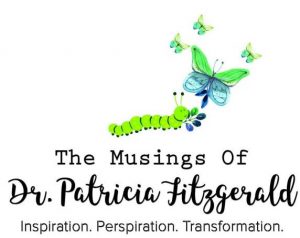The practice of mindful eating—being present, thankful, and focused as you eat—has become a popular way to help people slow down, lose weight, and reconnect with their food.
I am a strong believer in this approach for everyday use, and recommend it to my patients struggling with emotional eating, overeating, and food addiction.
And though much advice is given on becoming mindful while you eat, very little emphasis is given to the importance of mindful meal preparation.
Meal planning, shopping, cooking…all these steps are crucial to cultivating a successful, holistic, connected eating experience.
In today’s post, we will offer 5 Steps to developing awareness around mindful meal preparation to help you reconnect with your food at its source.
If you already practice mindful eating, these keys will only enhance your experience. And if you’ve never practiced mindfulness with regards to food, this is an excellent place to begin overcoming food disconnect for good.
Mindful Meal Preparation Step 1: Mindfulness starts with planning
A menu plan is the first step toward developing your holistic mindful eating practice.
For some, this will mean writing out a fixed menu and grocery list for the entire week, then doing one big shop.
For others, this may mean planning one day for your meals the next day, and shopping each day for whatever foods are freshest. Shopping daily is common in many European cultures where mindful meal preparation and mindful eating is a natural part of daily rhythms.
There is no wrong way to do this, the main points are:
Think about what you will eat at least one day before you will eat it.
Take the time to craft a menu that will be enjoyable and realistic for YOU to plan, shop for, to cook, AND to eat.
- If you don’t enjoy cooking, opt for simple 20-30 minute meals.
- If it’s the middle of winter, don’t count on finding fresh figs or heirloom tomatoes for an arugula salad.
- Set yourself up for success based on your time, skill set, and favorite foods. For example, if you work 60 hours a week, attempting an all-raw menu at home may not be the most realistic course of action.
- Make a grocery list at the time of menu planning and stick to it. This will help you get organized, save time and money, and keep you focused at the store.
- Write your menu plan down so you don’t forget.
Not wild about menu planning? Then check out some of my favorite time-saving apps and menu planners:
- The Nourished Kitchen Meal Plan Subscription offers a sample menu free, then paid subscription follows. Focus on grain-free, fermented foods.
- Anylist is a great app for families or couples who need to collaborate on a single shopping list, with a free or a premium version that lets you set up location-specific reminders for certain items (eg: if you’re at Whole Foods and don’t want to forget your favorite almond milk).
- 100 Days of Real Food Menu Planning offers free menu planning focus on real, whole foods.
- Mealboard app lets you tap and add recipes from your favorite blogs or site while aggregating a grocery list and helping you budget.
- Veggie Meal Maker offers a free 30-day subscription with a focus on vegetarian/vegan foods.
Mindful Meal Preparation Step 2: Be mindful of where you choose to shop

Imagine traveling through time from the 1800s to the 21st century and winding up in a modern grocery store.
Suddenly you would be surrounded by aisles and aisles of brightly package foods only identifiable by illustrations or photos on their labels, bad lighting, bad music, and only a small section dedicated to fresh foods—much of which are also packaged in plastic and Styrofoam.
Apart from feeling immediately overstimulated and confused; you wouldn’t have a CLUE how to procure your food.
If you think about it, the typical grocery store experience is indicative of food disconnect.
Here are some tips to help you shop smarter:
- Seek out local health food and natural food stores.
- Also, many local privately owned grocers and grocery store chains stock items from local growers.
- Frequent local farmer’s markets.
- Join a Community Supported Agriculture (CSA) program.
- Look into weekly produce box programs—often offered by farms, integrative health practitioners, health food stores, or local restaurants.
- When you do have to shop big grocery (and realistically, many of us do) stick to the perimeter, stay true to your list, and buy local and organic as much as possible.
Step 3: Be mindful of whom you support with your grocery dollars
Mindfulness starts on the farm…factory…or feedlot.
Look for produce from organic growers who nurture the land and soil through conservation efforts.
If you can find biodynamic through a farmer’s market or CSA…even better!
If you eat meat and poultry think about the welfare of the animals. Look for organic, grass-fed and finished/pasture-raised, ideally with an Animal Welfare or Certified Humane label.
The term “free range” on eggs and poultry sounds good, but is misleading. More often than not all it means is the chickens have limited access to a tiny, screened-in porch for a fixed number of hours per day.
For fish and seafood, avoid farm-raised, and look for wild fish/wild-caught, sustainable, and steer clear of endangered species.
For up-to-date info on sustainable seafood, visit seafoodwatch.org and download their app.
For more on truth in meat and dairy labeling, click over to the Environmental Working Group’s webpage on decoding meat and dairy labels.
Mindful Meal Preparation Step 4: Develop peaceful cooking habits, cook with love
Food prepared with love just tastes better and is likely a lot better for you.
A study from the University of Maryland showed that food really does taste better to us when we believe it was made by someone we love or admire1.
In addition, the late researcher, Dr. Masaru Emoto, has also done some fascinating research on the effects of positive and negative words, emotions, and music on water crystal formation2, which may explain why food prepared with love feels so different.
Since most of our food is either made up of OR is cooked with water, Dr. Emoto’s research is worth taking to heart in the kitchen.
If you have taken the time to craft a meal that suits your tastes, timeframe, and skill set, then creating a peaceful, enjoyable, and healthy atmosphere in the kitchen will naturally follow.
Here are some peaceful cooking tips:
- Begin cooking with a thankful heart.
- If you wish to use a mantra, try this: “Food and life are sacred, and to be enjoyed with a thankful heart and open spirit of celebration. ” I often focus on how fortunate I am to be able to have access to amazing food, a creative cooking spirit (from my Italian grandmother), and friends and family to enjoy meals with.
- Turn off the TV.
- Opt for silence or relaxing, uplifting music.
- Resist the urge to multitask or talk on the phone.
- Wear comfortable clothing that you don’t mind getting dirty.
- If you can, cook with loved ones (yes, pets count!).
- Enjoy a healthful, relaxing beverage while you cook, like kombucha, herbal tea, or even a glass of red wine now and then.
Julia Child had some great advice on the topic of relaxing into cooking…even if you’re a novice,
“Usually one’s cooking is better than one thinks it is. And if the food is truly vile … then the cook must simply grit her teeth and bear it with a smile—and learn from her mistakes.”
In other words, enjoy yourself and cook with an open mind and heart.
Step 5: EAT Mindfully
After all the amazing work you have done procuring and preparing your food mindfully, don’t forget to carry that mindfulness into the dining room.
For an easy get-started guide on mindful eating, I highly recommend viewing: The 7 Habits of Mindful Eating video, by author Lillian Cheung of The Harvard School of Public Health.
A Word about Eating Out
If you can’t cook, or just enjoy going to out eat many of the same steps apply.
Plan where you will eat.
Think about whom are you buying from and how are they preparing your food. What’s the atmosphere like? Do the staff seem happy? Do they enjoy their work? Do they source food sustainably?
Eat with a thankful heart and enjoy eat bite mindfully.
When you do have to grab a meal on the go, think light: light food, light attitude…and consider taking some plant-based digestive enzymes if you need them.
And remember, we can’t always control where our food comes from, but we can always be thankful for it.
There you have it, the 5 missing steps to mindful eating that will help you reconnect with your food, get organized in the kitchen, strengthen your cooking skills, and cultivate a stronger relationship with your local food community.
-Dr. Patricia
References:


